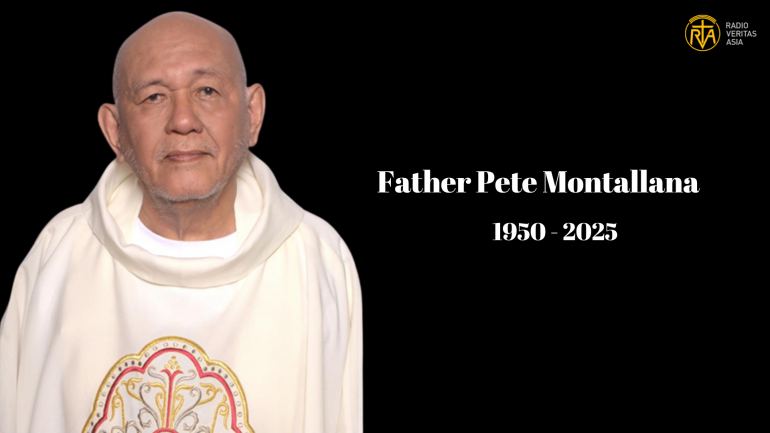A noted Filipino environmental activist dies at 75

A Filipino priest, who was a lover of indigenous peoples and an environmental activist, died on January 27. He was 75.
Father Pedro “Pete” V. Montallana, a priest of the Prelature of Infanta, died due to health complications. Previously, he was a member of the Order of Friars Minor-Philippine Province.
Infanta is a Catholic territorial prelature located in the municipality of Infanta, Quezon, in the ecclesiastical province of Lipa in the Philippines.
"Fr. Pete has lived his life dedicated to the Charism of St. Francis serving the Indigenous People of the Prelature since 1993 and was officially incardinated in 2022," said Bernardino C Cortez, Bishop-Prelate of Infanta.
He was, until his death, the parish administrator of the Prelature Shine of St. Joseph, Polillo, Quezon.
His remains lie in state at the Santo Niño Chapel St. Mark Cathedral, Infanta, Quezon.
Pete was born on January 18, 1950 and ordained priest on October 12, 1977.
He dedicated his life to championing the rights of the marginalized, safeguarding creation, and nurturing the faith of those entrusted to his care.
“His passing leaves an immense void, but his enduring legacy of service, compassion, and advocacy will forever inspire us,” said a press note issued by the Conference of Major Superiors in the Philippines (CMSP).
Fr. Pete’s service as co-executive secretary of the Conference of Major Superiors in the Philippines (formerly the Association of Major Religious Superiors for Men) from 1985 to 1989 marked a significant chapter in his life.
During this time, he exemplified leadership, collaboration, and a deep commitment to the mission of the Church.
His work helped strengthen the collective efforts of religious superiors in advancing justice, peace, and the well-being of the marginalized, reflecting the Church’s prophetic call to service.
He was known for his enduring love for the poor and indigenous peoples, particularly the Dumagat tribe.
His role as director of Bahay Paghubog-Infanta, a project for Dumagat youth, was a testament to his unwavering commitment to education, cultural preservation, and faith formation.
He walked alongside the Dumagats as a guide and advocate, empowering them to reclaim their identity and fight for their rights in the face of exploitation and marginalization.
Fr. Pete’s ministry extended to the Indigenous Peoples’ Apostolate (IPA), where he served as coordinator, and to his environmental activism, which spanned 27 years.
He was a vocal advocate for the preservation of the Sierra Madre, a mountain range in the Philippines that runs from the province of Cagayan in the north to the province of Quezon in the south. It is the longest mountain range in the country.
He tirelessly opposed projects like the Kaliwa Dam, recognizing the symbiotic relationship between tribal communities and nature.
Despite facing threats and challenges from powerful forces, Fr. Pete remained steadfast in his mission, guided by his faith and a profound trust in God’s providence.
His life was a living testament to the Gospel values he cherished. Inspired by the poverty of St. Francis and Pope Francis’ call for a Church of the poor, Fr. Pete embraced a life of simplicity and humility, sharing in the joys and struggles of those he served.
Even during his trials, including a life-threatening heat stroke during a Senate hearing on the Kaliwa Dam, Fr. Pete found strength in God’s grace and returned to his ministry with renewed vigor.
Fr. Pete’s passion for justice, his care for creation, and his deep spirituality have left an indelible mark on countless lives.
“His legacy calls us to continue the work he so fearlessly championed: to defend the dignity of the poor, to preserve God’s creation, and to see Christ in every person we encounter,” said the press note from CMSP.
“His life was a light in the darkness, a beacon of hope for the oppressed, and a reminder of the boundless love of God. We will always remember him with gratitude and love," CMSP added.
Radio Veritas Asia (RVA), a media platform of the Catholic Church, aims to share Christ. RVA started in 1969 as a continental Catholic radio station to serve Asian countries in their respective local language, thus earning the tag “the Voice of Asian Christianity.” Responding to the emerging context, RVA embraced media platforms to connect with the global Asian audience via its 21 language websites and various social media platforms.














